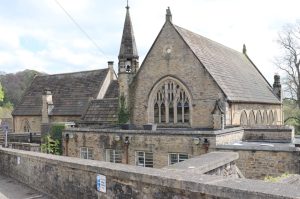Shire Timber has grand designs on self-build market

TIMBER frame manufacturer Shire Timber said it is poised to take advantage of growing demand in the self-build market as demand strengthens in the construction industry.
When the credit crunch hit, the construction industry took some of the heaviest blows with major players going out of business as cash flow dried up and savage price-led competition ruled the day.
“For the last four years winning business has all been about the cheapest price but as we come out of the recession and demand picks up it’s more about the ability to deliver to contract schedules,” said Mark Crowther, managing director of the Leeds-based company.
The Government’s ‘Help to Buy’ programme has helped stimulate demand although Mr Crowther thinks there is a danger that the initiative could inflate house prices.
While optimistic, like many manufacturers he said he is therefore “very cautious” about the prospects for a sustained recovery.
“We’ve seen growth in the business this year and at the moment we’re on target for around 10% increase in turnover compared to last year but we’re still £1m down on the £8m turnover we were achieving before the recession,” he said.
At the start of 2009, as recession began to bite, the company put plans to invest and move to new premises on hold.
“We took a conscious decision to protect jobs and we called it right. Our competitors let a lot of their more experienced staff go and now they haven’t got the skills and the capacity to meet demand.”
The company’s 60-strong workforce is divided between office-based staff, responsible for product design, project management and administration, and 35 shop floor workers who build the roof trusses, floor cassettes and timber frame modules that are at the core of the business.
“Our biggest customers include the major house builders and contractors such as Persimmon, Morgan Sindall and Keepmoat,” says Matt Crowther, operations director.
“We supply to house builders across the UK, mainly for the residential market but we also do a lot of work for hotels and student accommodation. In fact, timber frame is the fastest growing method of construction commercially.”
Revenue from outside the region has doubled compared to pre-recession figures.
“We’ve improved out market share in the North of England in particular. Partly it’s because we’ve lost some of our competitors but it’s also because we’ve got better in terms of the quality of our products, efficiencies and customer service,” said Mark Crowther who took over the business following an MBO in 1996.
“We’ve also placed a lot of emphasis on innovation.”
He points to growing demand for the new Structurally Insulated Panel System (SIPS), manufactured on site at the company’s plant on Cross Green Industrial Estate.
SIPS gives greatly improved thermal insulation, compared to conventional block built housing, helping to reduce fuel bills and reduce carbon emissions, and are proving especially popular in the self-build market.
“Building standards are moving the industry in the right direction but we’re also seeing a lot more eco-awareness, particularly in the self-build market. With self-build accounting for around 10% of new homes being built and almost 75% of these using timber frame as the primary method of construction, I see a real opportunity for growth in this market. Demand is also being fuelled by TV series such as ‘Grand Designs’, which make people more aware of the choices available to them,” he said.








